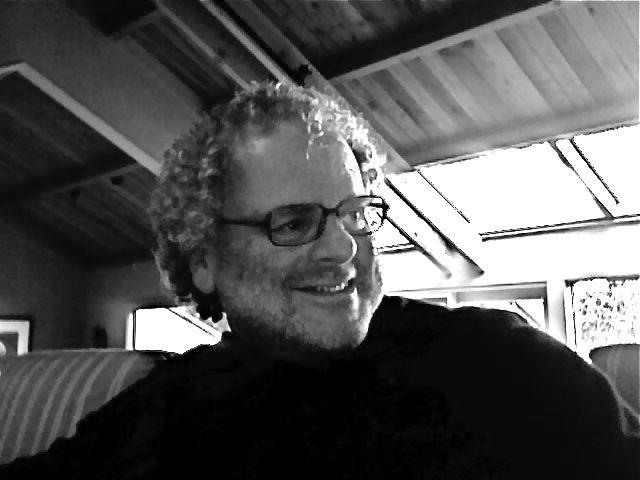Antonio Zadra
Antonio Zadra, PhD, is a professor of psychology at the University of Montreal, director of the department’s Dream Research Laboratory, and researcher at the Hôpital du Sacré-Coeur’s Center for Advanced Research in Sleep Medicine. Drawing on a variety of research tools and approaches, Zadra has published over 100 scientific articles and book chapters on sleep and dreams, including on recurrent dreams, lucid dreams, everyday dreams, typical dreams, and nightmares. His work has been featured in numerous media outlets including Psychology Today, The Scientist, Slate, The New Yorker, The Atlantic, The Guardian, Bloomberg, Le Figaro and Le Monde and has been featured in several documentary productions including the CBC’s The Nature of Things and PBS Nova.
Zadra is the co-author of When Brains Dream: Exploring the Science and Mystery of Sleep which offers a neuroscientific exploration of what dreams are, where they come from, what they mean, and why we have them, and the author of The Dreamkeepers, a novel blending sleep science with dream mythology. His current research centers on how dreams are impacted by daytime experiences and emotional well-being, on the pathophysiology and treatment of dream-related disorders, on the relation between dreams and cinema, and on the adaptive functions of dreams.
Gina Poe
Gina Poe has been working since 1995 on the mechanisms through which sleep serves memory consolidation and restructuring. Dr. Poe is a southern California native who graduated from Stanford University then worked for two post-baccalaureate years at the VA researching Air Force Test Pilots’ brainwave signatures under high-G maneuvers. She then earned her PhD in Basic Sleep in the Neuroscience Interdepartmental Program at UCLA under the guidance of Ronald Harper then moved to the University of Arizona for her postdoctoral studies with Carol Barnes and Bruce McNaughtons looking at graceful degradation of hippocampal function in aged rats as well as hippocampal coding in a 3-D maze navigated in the 1998 space shuttle mission. She brought these multiunit teachings to answer a burning question of whether REM sleep were for remembering or forgetting and found that activity of neurons during REM sleep is consistent both with the consolidation of novel memories and the elimination of already consolidated memories from the hippocampus, readying the associative memory network for new learning the next day.
Michelle Carr
Michelle Carr, Ph.D., is a Postdoctoral Associate in Psychiatry at the University of Rochester, working in the Sleep and Neurophysiology Research Laboratory where she studies the neurocognitive science of sleep, dreams and mental health. She previously completed postdoctoral training at the Swansea University Sleep Laboratory studying the neurophysiology of nightmares, and lucid dream induction and phenomenology. Michelle received her PhD in Biomedical Sciences from the University of Montreal in 2016, conducting research with Dr. Tore Nielsen at the Dream and Nightmare Laboratory. Her current research is focused on the structure and functions of dreaming, nightmares and other dream disturbances, and dream engineering—new techniques and technologies designed to influence dreams to benefit mental health and wellbeing. She led the organization of the 1st International Dream Engineering Workshop hosted at the MIT Media Laboratory in January 2019 and served as Managing Guest Editor for a Special Issue of Consciousness and Cognition on the same topic. Michelle is also current Vice President of the International Association for the Study of Dreams, and translates dream research to the public by writing for Psychology Today.
Rafael Pelayo
Rafael Pelayo, MD is the author of How to Sleep and a clinical professor at Stanford University. Since 1993 he has worked at the Stanford Sleep Disorders Clinic. He teaches the popular Sleep and Dreams undergraduate course and co-authored the textbook with Dr. William Dement. He is the president of the California Sleep Society. He is the chair of the American Academy of Sleep Medicine’s Political Action Committee. He serves on the boards of the National Sleep Foundation and Start School Later. He has lectured throughout the country and internationally. He helped lead the effort to delay school start times in California. His undergraduate degree is from the University of Puerto Rico. His initial exposure to sleep medicine was as a medical student in the Bronx and it became the focus of his career. He chose child neurology as a pathway into sleep medicine.
Robert Stickgold
Robert Stickgold is a professor of psychiatry at Beth Israel Deaconess Medical Center and Harvard Medical School. He received his B.A. from Harvard University and his Ph.D. from the University of Wisconsin, Madison, both in biochemistry. He had post-doctoral fellowships at Stanford Medical School in neurochemistry (with Eric Shooter) and at Harvard Medical School in neurophysiology (with Stephen Kuffler).
He has published two science fiction novels, and over 100 scientific publications, including papers in Science, Nature, and Nature Neuroscience. His work has been written up in Time, Newsweek, The New York Times, The Boston Globe Magazine, and Seed Magazine, and he has given invited talks around the world, including Brazil, Sweden, Switzerland, Japan, and The Netherlands. He has been a guest on PBS NewsHour with Jim Lehrer and NPR’s Science Friday with Ira Flato several times, extolling the importance of sleep. He has spoken at the Boston Museum of Science, the American Museum of Natural History in New York, and NEMO, the Amsterdam museum of science.
His current work looks at the nature and function of sleep and dreams from a cognitive neuroscience perspective, with an emphasis on the role of sleep and dreams in memory consolidation and integration. He has been a pioneer in establishing the importance of sleep in offline memory processing, and has identified a range of memory types enhanced by sleep. In addition to studying the normal functioning of sleep, he is currently investigating alterations in sleep-dependent memory consolidation in patients with schizophrenia, autism spectrum disorder, and PTSD. His work is currently funded by NIMH. He is coauthor, with Antonio Zadra, of the new book When Brains Dream.
